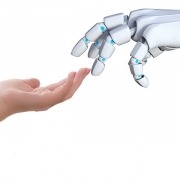Can doctors use automatic translation?
“I spent a semester in China last year. A month before I was supposed to leave I started experiencing flu-like symptoms. Since English is not widely spoken, I used an automatic translator via my Smartphone to communicate with the doctors. I think the staff understood me, despite bursting into laughter at some sentences!” says Nicolas for ITC Global Translations.
We always encounter these problems at the most inconvenient times! Can we put our faith in automatic translators, especially in the medical field, when we go abroad?
The British Medical Journal investigated this. It selected the top ten phrases most frequently used by sick people and their loved ones and translated them into 26 different languages using Google Translate. The results were sent to medical professionals whose mother tongue was among the 26 languages involved and asked them to rephrase them into English.
It turns out that less than 60% of translations are correct and there are major discrepancies depending on the languages.
The result: it turns out that less than 60% of translations are correct and there are major discrepancies depending on the languages. When translating from English into a European language, the compliance rate reaches 74%. However, when going from an Asian language to an African language, only 45% of the phrases are correct; the worst being Swahili (Bantu language in Eastern Africa), reaching a conformity rate of only 10%.
For example: The message “your wife is in stable condition” given to an unfortunate husband in Marathi became “your wife cannot fall any lower”. And once, after a sudden death, the doctors wanted to inform the Polish wife of the possibility to have her husband’s organs donated, and the result was: “Your husband can donate his tools.”
In the end, automatic translation can be helpful in certain emergency situations, but priority should always be given to professional human translators!





















Leave a Reply
Want to join the discussion?Feel free to contribute!